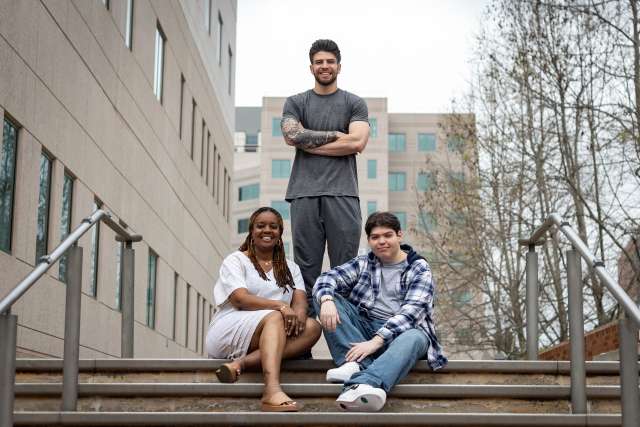Of the 3 million California adults who have recently experienced psychological distress and are eligible for public mental health services, 1.8 million say they have received no treatment or support, according to a policy brief released today by the UCLA Center for Health Policy Research.
The findings, the researchers say, highlight the need to expand access to the prevention and early intervention programs of the state's Mental Health Services Act, or Proposition 63, passed in 2004 to provide comprehensive support for uninsured residents and those on Medi-Cal or other public insurance programs.
While previous studies assessing unmet mental health needs have focused on people requiring intensive services, such as those with serious psychological distress, this analysis is the first to also identify and examine gaps in care for those with moderate psychological distress, which, if untreated, could become severe and disabling, said the report's lead author, D. Imelda Padilla-Frausto, a research scientist at the center.
"We wanted to approach the gaps in mental health care services from a strong public health standpoint, in that preventive and early care is crucial to keep issues from significantly interfering with individuals' daily lives and negatively impacting their overall quality of life," said Padilla-Frausto.
The researchers used data from the center's 2018 California Health Interview Survey, or CHIS, to investigate the potential of MHSA programs to reach adults with both serious and moderate mental health problems. They found that among adults with serious psychological distress, those who were MHSA-eligible were slightly more likely to report unmet needs than those who were not eligible (46.7% vs. 41.4%). MHSA-eligible adults with moderate psychological distress were also more likely than non-eligible adults to have unmet needs (74.2% vs. 63.3%).
The study also examined and compared unmet mental health care needs among various groups of California adults who were eligible for MHSA services during the previous year. The findings include:
Gaps in mental health care are higher among those with moderate psychological distress than among those with serious distress.
- Of 1.3 million adults with moderate distress, 7 in 10 (1 million) reported unmet needs.
- Of 1.7 million with serious distress, nearly half (800,000) had unmet needs.
Latinos and Asians are more likely than other ethnic groups to report unmet needs.
- Nearly 3 in 5 Asians and half of Latinos with serious distress had unmet needs.
- 4 out of 5 Latinos with moderate distress had unmet needs, as did 7 of 10 Asians.
Citizenship and language are barriers to care.
- Among noncitizens, 7 of 10 with serious psychological distress, and 9 of 10 with moderate distress, had unmet needs.
- 4 of 5 naturalized citizens with moderate distress did not access the services they needed.
- Among those with limited or no English proficiency, 3 out of 5 with serious distress, and nearly 9 of 10 with moderate distress, had unmet needs.
Age, education, and marital and family status affect access to care.
- Among adults age 65 and over, 3 of 5 with serious distress, and nearly 4 of 5 with moderate stress, did not access the services they needed.
- For adults with moderate stress, 4 out of 5 with less than a high school education, and 7 of 10 with a high school education, had unmet needs.
- Among married adults with moderate distress, roughly 9 in 10 did not access services they needed; those with children had slightly lower unmet need than those without children.
Based on their findings, the researchers recommend the adoption of several policies that would further the reach of MHSA services. These include increasing funding to expand access to the Community Services and Supports program and the Prevention and Early Intervention program; increasing and promoting a culturally competent and linguistically appropriate mental health workforce; and prioritizing evaluation and statewide monitoring of the impact of these efforts.>
These recommendations are especially crucial at a time when California and the nation are experiencing such instability and uncertainty, said Padilla-Frausto.
"Because of the COVID-19 pandemic and the recent racial unrest in the United States, there is an anticipated increase in demand for public mental health services related to the multitude of hardships from the loss of job-based insurance coverage, to the mental and emotional toll of fighting against racial injustices," she said. "As such, it's vital to support policies that ensure the continued provision of care to the communities that need mental health support and services."



